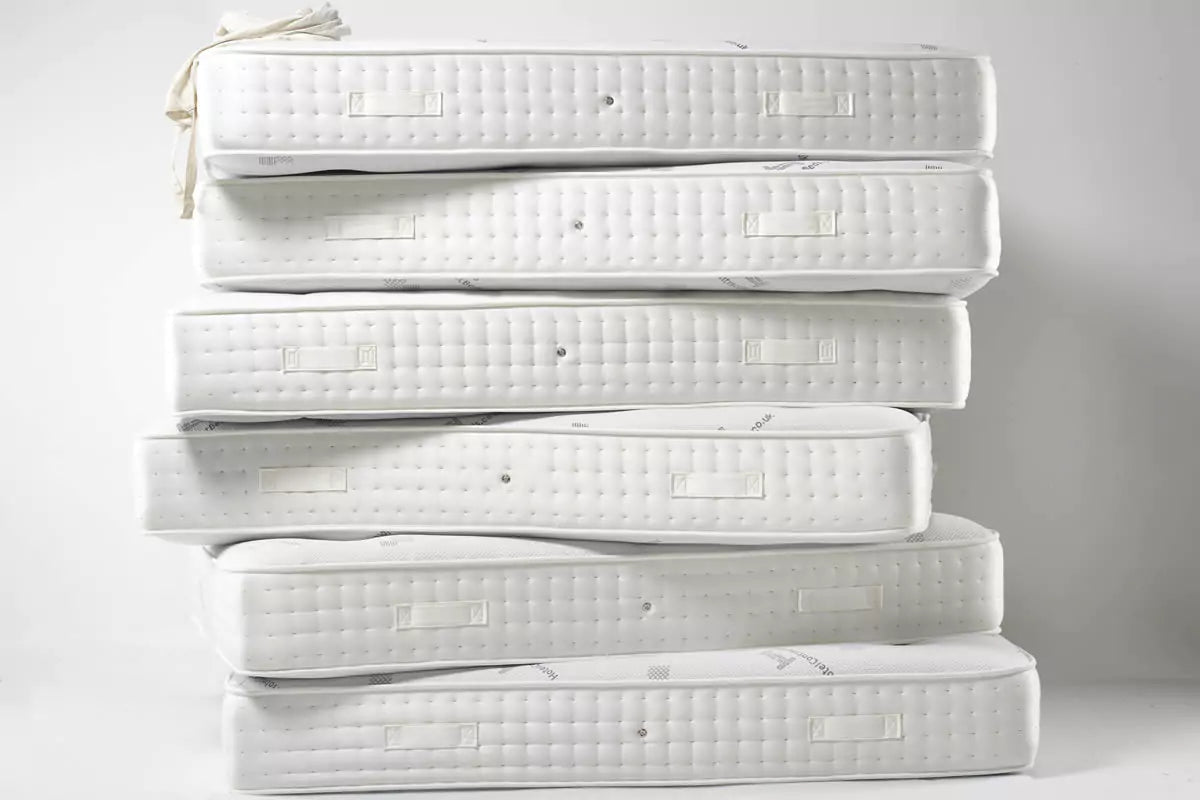25th February 2025

We spend roughly one-third of our lives in bed, so it’s no surprise that our mattress has a huge impact on our health, sleep quality, and overall wellbeing. But like any daily-use item, mattresses don’t last forever. If you’re waking up with aches, sneezing more at night, or noticing sagging in your bed, it might be time to consider a mattress replacement.
So, how often should you change your mattress? Let’s break it down.
The General Rule: Replace Your Mattress Every 7–10 Years
Most sleep experts and mattress manufacturers recommend replacing your mattress every 7 to 10 years. However, this isn’t a hard rule — the right time to get a new mattress depends on:
- Type of mattress
- Level of care and maintenance
- Your sleeping habits
- Changes in your body, health, or lifestyle
Mattress Lifespan by Type
Different mattress materials wear out at different rates. Here’s a general guide for mattress lifespan by type:
- Innerspring mattresses – 7 to 8 years
- Memory foam mattresses – 8 to 10 years
- Latex mattresses – 10 to 12 years (or longer!)
- Hybrid mattresses – 7 to 10 years
- Pillow top mattresses – 6 to 8 years
Natural latex mattresses are typically the most durable, while pillow-top mattresses may show wear sooner due to their softer, plush layers.
Signs You Need a New Mattress
Even if your mattress is under 10 years old, you might need a replacement sooner. Watch out for these common signs of a worn-out mattress:
- Soreness or stiffness – A good mattress should keep your spine aligned and reduce pressure points.
- Visible sagging or lumps – Any dips, bumps, or uneven surfaces mean your mattress isn’t supporting you properly.
- Allergies or asthma flare-ups – Dust mites, mould, and allergens accumulate over time.
- Noisy springs or creaking – Innerspring mattresses can signal coil wear.
- Better sleep elsewhere – If you sleep better on a sofa or at a hotel, your mattress may be the issue.
- Lifestyle changes – Weight changes, injuries, or a new sleeping partner can affect your comfort needs.
How to Extend the Life of Your Mattress
If you’re not ready for a full replacement, there are ways to prolong your mattress lifespan:
- Use a mattress protector – Shields against spills, sweat, and allergens. Check our mattress protectors collection.
- Rotate your mattress – Every 3–6 months helps prevent uneven wear, especially for memory foam and hybrid mattresses.
- Keep it clean – Vacuum occasionally and air out when changing bedding.
- Ensure proper support – Your bed frame or base should provide even, stable support. Browse bed frames for optimal support.
When a Mattress Replacement is Worth It
Investing in a new mattress isn’t just about comfort — it’s about better sleep, health, and daily performance. Poor sleep is linked to back pain, fatigue, mood swings, and weakened immunity, making a quality mattress a true health investment.
There’s no exact expiration date, but if your mattress is older than 7 years, shows visible signs of wear, or is affecting your sleep quality, it’s time to consider a replacement. Trust your body — if you’re not waking up refreshed, your mattress could be the culprit.
Find Your Perfect Mattress
Not sure which mattress suits you best? Take our Mattress Matchmaker Quiz or browse our expertly curated range of mattresses to find the perfect fit for every sleeper and budget.








